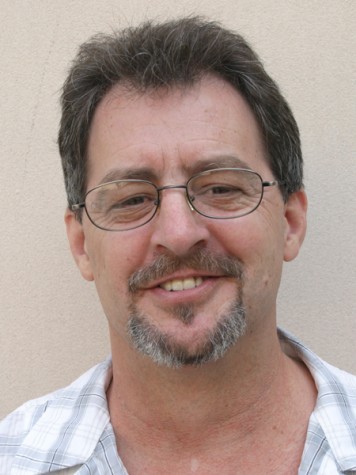Every year on April 24, the painful memories of an act of genocide permeates the Armenian community in reminder of what has been and what should never happen again.
On this day, Armenians from Yerevan to Glendale commemorated 94 years since the events of the 1915 Armenian Genocide, which saw Turkish soldiers take the lives of more than 1 million Armenian people.
“My grandmother told me stories about how professors and scholars would be decapitated and then mocked,” said 20-year-old GCC student Adrineh Asadourian. “It’s just brutal.”
However, the stories and whispers of those who lost their lives are just a part of the ever-growing stalemate in recognizing the events of 1915.
The word “genocide” itself has pitted many politicians, ambassadors and presidents against Turkish lobbyists, as well as politicians who do not want the U.S. to lose its military stronghold on the Turkish-Iraqi border.
In 2006, U.S. ambassador to Armenia, John Evans, proclaimed the acts of 1915 a genocide.
“Ninety years is a long time, and at some point, you have to call a spade a spade,” said Evans in press-release in January 2007.
Evans, as a result, was recalled from his position.
“It was the absolute wrong thing to do,” said Glendale City Councilman Ara Najarian in regards to the recall of Evans. “Governor Gov. Schwarzenegger, every year, has mentioned the genocide and the world didn’t collapse.”
The recall sparked fiery controversy from the Armenian diaspora, as well as from members of the senate, particularly the then-junior senator from Illinois: Barack Obama.
Obama wrote a letter in July of 2006 to former Secretary of State Condoleeza Rice, underlining the importance of acknowledging the Armenian Genocide as a real historical event.
Accompanying his letter to Rice were documented accounts of the genocide by U.S. state department officials working in the Ottoman Empire, which described the images they saw before them as “a campaign of race extermination,” and “a carefully planned scheme to thoroughly extinguish the Armenian race.”
“It was an appalling decision,” said Rep. Adam Schiff, whose district includes the college. “He [Evans] was not going to equivocate the word ‘genocide’ and it cost him his job. I have great respect for him .
“It’s going to be interesting to see what the new ambassador [Marie L. Yovanovitch] does.”
After returning from his recent trip to Turkey, Obama reiterated his stance on the Armenian Genocide, saying that the “Armenian Genocide is not an allegation, a personal opinion, or a point of view, but rather a widely documented fact supported by an overwhelming body of historical evidence.”
He just never used the word that he had valiantly promised he would during his 2008 presidential campaign.
Instead, Obama replaced the word “genocide” with the Armenian word “Meds Yeghern” which translated means “great evil.”
“This year I started crying because he [Obama] did not say it. It broke my heart.” Asadourian said. “I can’t understand it.”
“When he decided not to use the word ‘genocide,’ for Armenians, it was a big disappointment,” GCC Professor Levon Marashlian said. “What made his claim different was it was so forceful.”
“His best chance was to do it his first year in office. I think the Turkish lobbyists and the denialist sympathizers in Congress are going further erode any commitment he had in recognizing the genocide,” said Najarian.
“We’re going to vigorously push President Obama to do the right thing and speak openly about April 24,” said Schiff, “We have our work cut out for us. Millions of dollars have been spent by Turkish lobbyists; it’s going to be a rough road.”
Although Armenia and Turkey have made strides toward reconciliation, especially recently when both nations met under the mediation of Switzerland to discuss the re-opening of the Turkish-Armenian border, the complete denial of the genocide on the part of the Turkish government has compounded the stagnating problem of proper justice and recognition entitled to the Armenian people.
“There have been ongoing talks between Turkey and Armenia to re-open the [Turkish-Armenian] border.” Said Schiff. “We hope that this newfound willingness is not a short-lived strategy to get past April 24.”
“It’s impossible to get past this unless the perpetrator admits it, and so far the perpetrator refuses to admit it.” Marashlian said.
“Armenia has always said that they want to have normal relations, with no-preconditions. Turkey has always had the pre-condition that Armenians should stop trying to get recognized.” Marashlian said. “They [Turkey] are blackmailing the U.S.”
“The thorn in the side of the Armenians is the refusal to acknowledge the Genocide,” Najarian said. “Economic ties may continue to build, but it’s never going to be a ‘normal relationship’ until Turkey can admit the genocide perpetrated by the Ottoman Turks.”
Schiff still remains confident justice will be served.
“We have the conviction that it’s just a matter of time,” the congressman said in regards to complete and total recognition by the U.S. as a whole. “It’ll be a longer period of time before Turkey does it, but you can only deny it for so long.
“We need to do it now. If it’s not the time now after 94 years,

